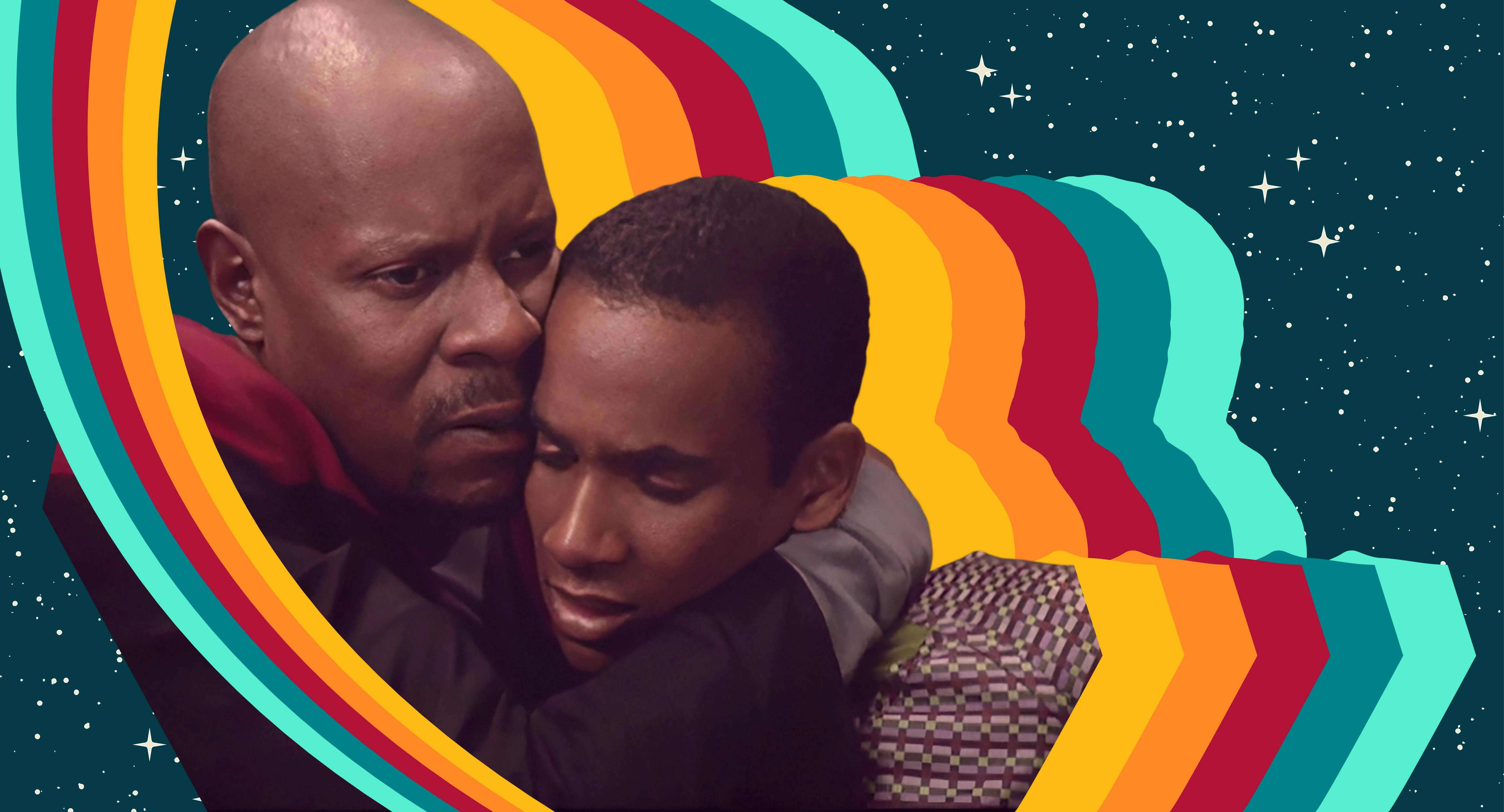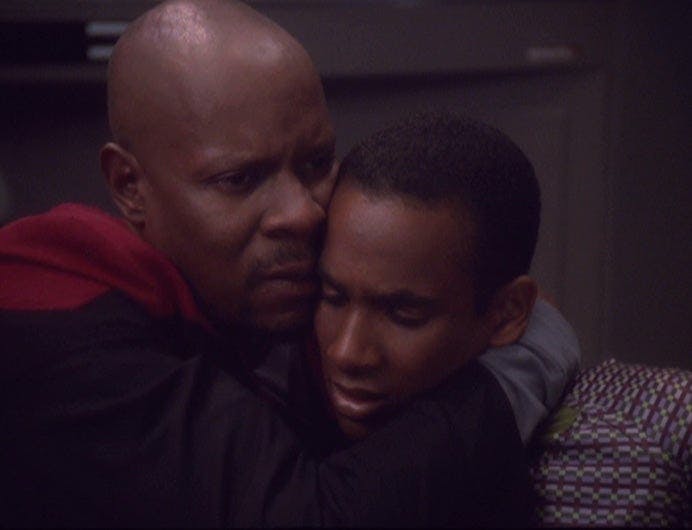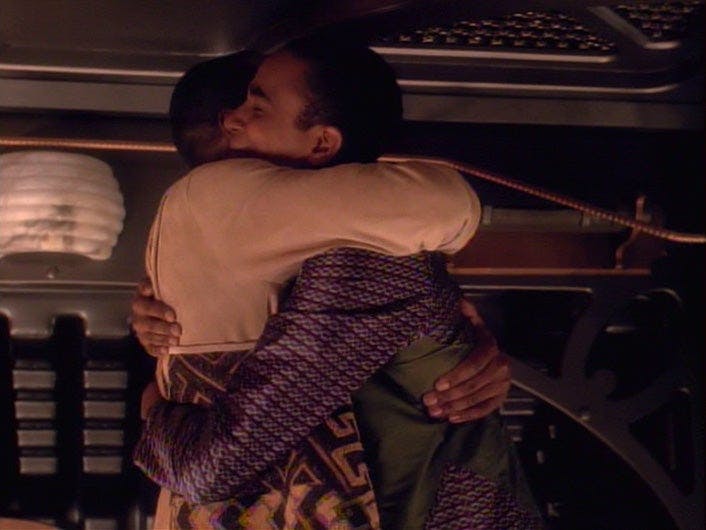Published Feb 20, 2023
The Talk Doesn't Exist in Star Trek: Deep Space Nine
Why Avery Brooks' portrayal of Benjamin Sisko gave this fan hope.

StarTrek.com
CONTENT WARNING: This article contains discussion of a racial slur.
As a Black father, Star Trek: Deep Space Nine holds a special meaning to me.
Star Trek: Deep Space Nine - Benjamin and Jake Sisko Get Ready for Their New Journey
When my son was four, he came home distraught. He refused to talk about it. After some coaxing, I was finally able to get out of him what is was that distressed him so — he had been called a "n*gger" in preschool.
He was too young to fully understand the history and weight of the term; he just knew it was bad. He did not like the way the term made him feel, and he was confused by why his friends, who looked on and laughed, did not feel the way he felt.
Our experiences with racism did not end there. When he was a bit older he attended a mostly white, conservatively Christian private school. A school that encouraged its students to do things like read racist literature, and refused to celebrate Martin Luther King, Jr.’s birthday. After meeting with the leadership, and offering my services for free as a scholar of Blackness in America, they politely turned me down. That was the last time my son attended that school.
I imagine that one day I will have to talk to him about driving. He is too young now, but when he is of age, I will have to have the oft discussed ‘talk’ with him. Like my mother had with me, and her parents had with her, I will have to warn him about the police. Tell him what he needs to do to survive the eventual encounter with law enforcement that he is destined to have. I may even talk to him about the time the police pulled a gun on me when I was 20, and then again when I was 25 and again when I was in my 30s — all because I fit the description of a man they were looking for and “acted suspicious.”

StarTrek.com
This is why Deep Space Nine is so special to me. It’s not because the storytelling was groundbreaking for its time, though it was. It is not merely because Benjamin Sisko, as a Black man, was a commander and captain, though that was awesome to see. No, the reason why Deep Space Nine mattered was Jake Sisko — Ben’s son.
Star Trek has historically been a source of optimism. It imagines a world where we are able to be our best. Yes, there is conflict, but, historically, it has seen us all as worthy of respect. Jake lives in a world where he would likely not be called a racial epithet at the age of four. Where, despite the school he attends, they would probably not deem his history as not worthy of celebration. Where, when he is able to drive (or pilot a ship), his father would likely not need to sit him down and have a talk about how to survive interactions with the police.
Star Trek: Deep Space Nine — The Unbreakable Bond Between Jake and Benjamin Sisko
Not much is made of this point on DS9 itself; it was just treated as a given. Sisko is from New Orleans. He is a good cook because, being from that city and growing up steeped in its history and being raised by Joseph Sisko, it makes sense that he would be. The show leans into the notion of Blackness. It favors the every day moments — the joyful ones (over trauma and suffering), Sisko’s home cooked station crew meals, the African masks on the walls of his quarters, the way Jake knows how much an authentic Willie Mays baseball card would mean to his father. These things — Black joy — were as revolutionary to see in the mid-90s as an episode like “Far Beyond the Stars” was. Unfortunately, they still are today.
When I look out in the streets, I see protestors asking for the world to treat Black people just like the inhabitants of DS9 treated Jake — as a kid worthy of respect. I don’t want to live in a world where Donald Trump is forced to change the date of a rally in my home state because he is insensitive to the date of Juneteenth, and lacks the knowledge to understand the history of Tulsa, the city where one of the worst race riots in American history occurred. Deep Space Nine is the kind of future I want to live in. It is the kind of world protestors are demanding for my little boy.

StarTrek.com
This article was originally published on June 19, 2020.
Lawrence Ware (he/him) is a professor of philosophy at Oklahoma State University and co-director of the Center for Africana Studies. Tweet him at @law_writes.
Stay tuned to StarTrek.com for more details! And be sure to follow @StarTrek on Facebook, Twitter, and Instagram.
